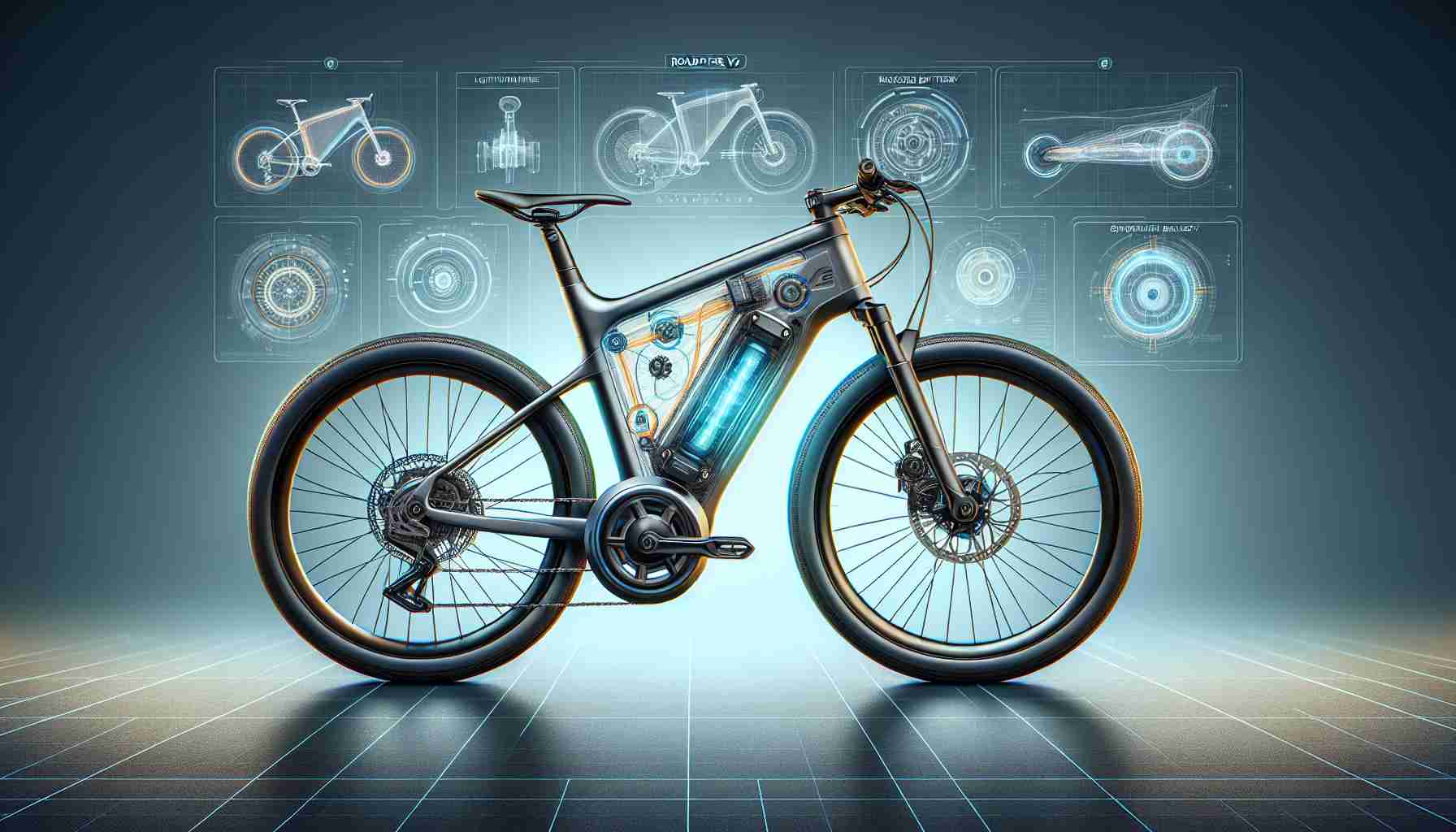The Ride1Up Roadster V3 has emerged as a trailblazer in the realm of lightweight e-bikes, priced at an affordable $1,295. This latest model, weighing just 39 pounds, exemplifies efficiency and ease of use in a minimalist design.
Riders can choose between a carbon belt drive for low maintenance or a versatile 10-speed Shimano Deore chain drive, catering to both casual journeys and challenging terrains. With various frame sizes available, including Low-Step, Small, and Large, the Roadster V3 is designed to accommodate diverse rider preferences.
At the heart of the bike is a robust 500W Mivice rear hub motor. This advanced motor operates smoothly due to its highly responsive torque sensor, providing a refined riding experience usually reserved for more expensive models. Additionally, a hand throttle feature allows for effortless acceleration, appealing to those who appreciate the option of speed without pedaling.
The integrated 36V, 10Ah battery is not only removable but can also be supplemented with an auxiliary battery, extending its range significantly. Other notable features include dual-piston hydraulic disc brakes for optimum stopping power, built-in LED lights for visibility, and quality Schwalbe G-One RS gravel tires.
With its compelling blend of lightweight design, versatility, and affordability, the Ride1Up Roadster V3 is set to resonate with riders seeking a practical yet high-performing electric bike for varied adventures.
The Ride1Up Roadster V3 represents a significant advancement in the lightweight electric bike (e-bike) industry, which has experienced rapid growth in recent years. As urbanization continues to increase and environmental concerns drive consumers toward sustainable transport options, the e-bike market is predicted to flourish. By 2027, the global e-bike market is expected to reach USD 118.6 billion, growing at a compound annual growth rate (CAGR) of 10.5% from 2020, according to various industry reports.
Industry Landscape
The e-bike industry encompasses a wide range of products and technologies, leading to a diversification that caters to various consumer needs, such as commuting, recreation, and sport. Lightweight models like the Ride1Up Roadster V3 are particularly popular among city dwellers and those looking for an alternative to traditional bicycles or cars. Features such as the high-performance Mivice motor, versatile drive options, and modular battery designs illustrate current trends favoring efficiency, flexibility, and user experience.
Significant players in this sector include not only Rider1Up but also major brands like Trek, Specialized, and Rad Power Bikes. These companies are actively competing by innovating their offerings with better technology and improved cycling experiences. The increasing investment into research and development (R&D) means consumers can expect ongoing advancements in battery technology, motor efficiency, and design aesthetics, ultimately reinforcing the market’s growth trajectory.
Market Forecasts
The future of lightweight e-bikes seems particularly bright, with projections suggesting sustained high demand for both urban commuting and recreational biking. As city infrastructures evolve to accommodate e-bike usage—through the development of dedicated bike lanes and incentives for e-bike purchases—more consumers are likely to join the e-bike community. Furthermore, the growing popularity of e-bikes among younger populations, who prioritize sustainability and fitness, contributes to positive market forecasts.
According to a report by ResearchAndMarkets, as e-bikes remain a preferred option for many commuters, the segment for lightweight models may see a substantial increase in sales. Riders can navigate through traffic with ease, reducing travel time and promoting healthier lifestyles along the way.
Challenges and Issues
Despite the optimistic outlook, the e-bike industry faces several challenges. One notable issue is regulatory concerns; different regions have varying regulations regarding e-bike use, including limits on motor power and speed. This inconsistency can create confusion for manufacturers and consumers alike, potentially affecting sales.
Additionally, supply chain disruptions, particularly those exacerbated by global events such as the COVID-19 pandemic, have made it challenging for companies to maintain product availability and meet growing demand. Battery sourcing is another critical issue, as the need for lithium-ion batteries puts pressure on raw material supplies, leading to price volatility.
Furthermore, as competition intensifies, there is a looming threat for brands to maintain their differentiation. Buyers today are savvy and shop for performance, value, and warranty visibility, necessitating that companies stay on the cutting edge of consumer desires. Companies must continue to innovate while also ensuring sustainability in their production practices.
In conclusion, the Ride1Up Roadster V3 is not just a product of an expanding industry; it embodies the broader trends and challenges shaping the future of lightweight e-bikes. For more information about the electric bike market and trends, check out Statista and Research and Markets.







